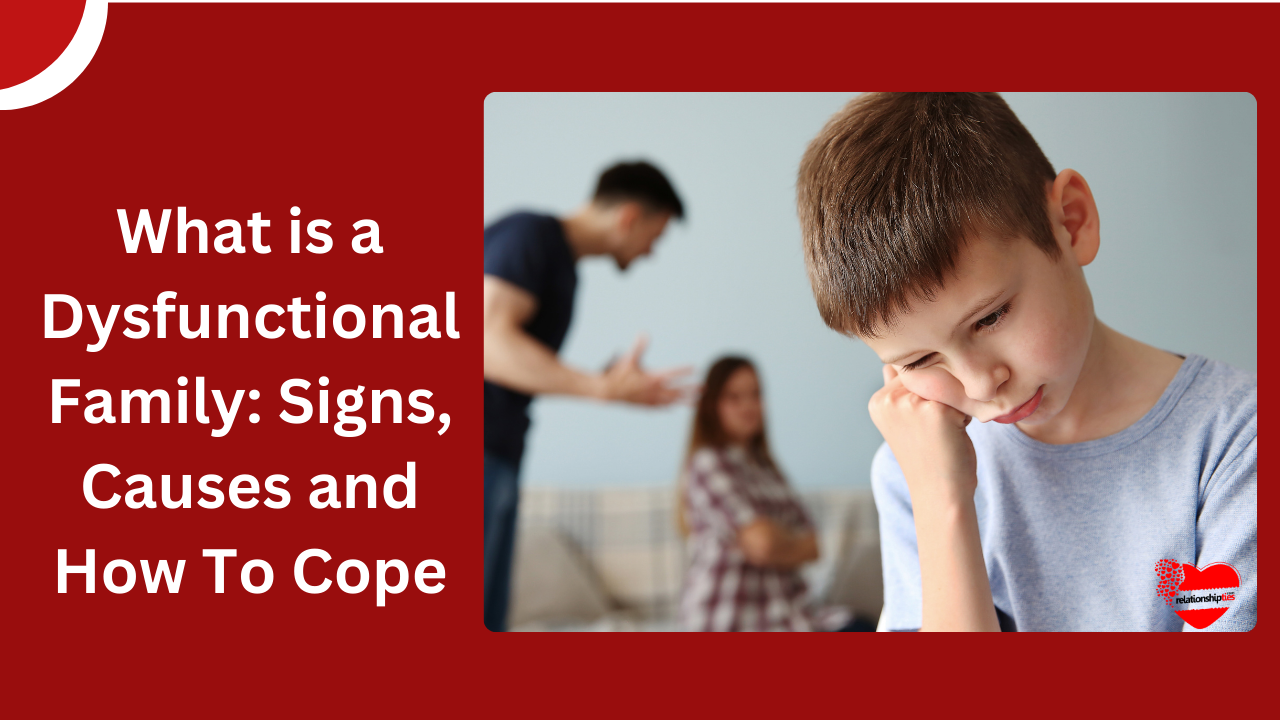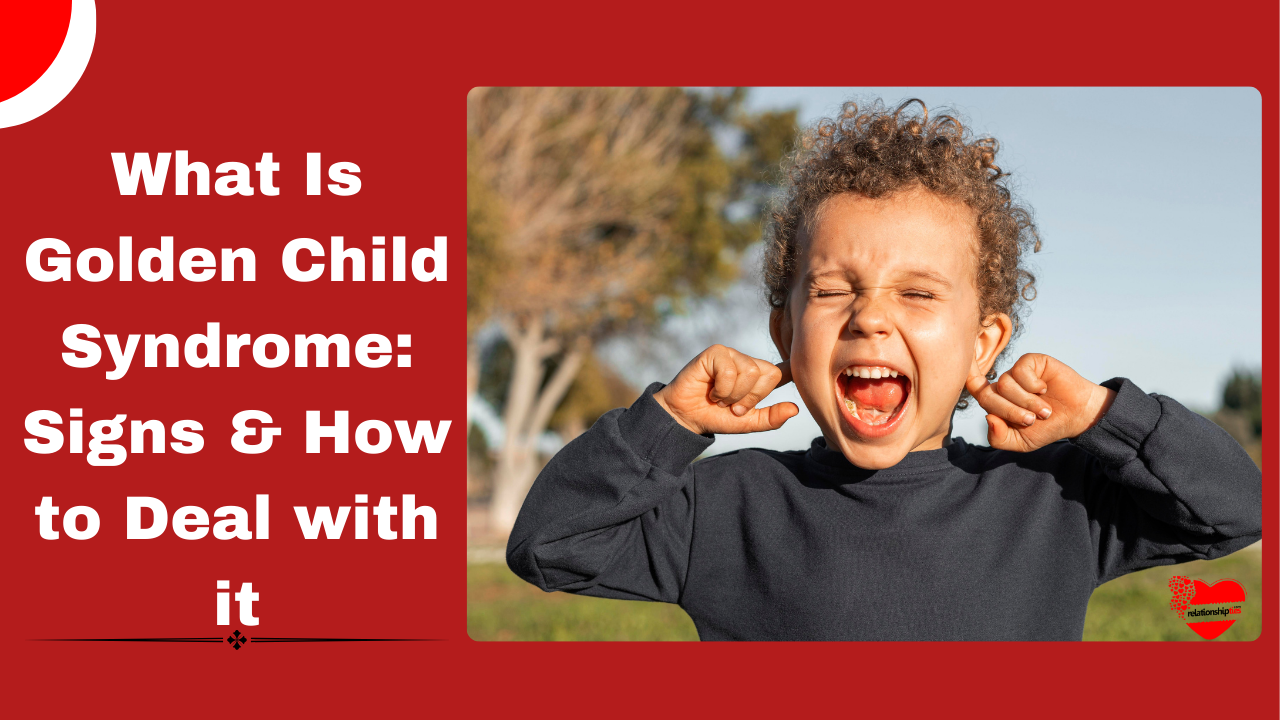Imagine being raised in a home where there is a culture of disorder and unpredictability, where people don’t talk about or express their emotions, or even where the holidays bring about more worry than joy. This is only a small sample of what might be called a “dysfunctional family.”
Despite the word’s dire connotations, it’s surprisingly widespread and can have a significant impact. In this in-depth post, we explore the topic of “What Is a Dysfunctional Family?” and explore its causes and symptoms in an effort to offer remedies to people who are facing similar situations.
Table of contents
What is a Dysfunctional Family?
A dysfunctional family is characterized by unhealthy or troublesome relationships, activities, and behaviours among its members.
This might include a range of problems like unclear boundaries, poor communication, neglect, abuse (verbal, emotional, or physical), and unpredictable conduct.
These dynamics frequently cause stress, strife, and difficulties inside the family, which has an impact on the growth and well-being of its members.
Read Also: What Is an Almond Mom? Signs & Ways to Deal
What are the Signs of a Dysfunctional Family?
Unhealthy communication, interpersonal, and behaviour patterns are hallmarks of a dysfunctional family. The members’ emotional, psychological, and physical health may suffer as a result of these habits.
Understanding dysfunctional families and how to deal with them starts with identifying their telltale indicators. The following are typical indicators to be aware of:
Poor Communication
There is frequently little to no communication in a dysfunctional family. Family members may refrain from discussing their emotions or worries, which can cause a breakdown in communication and understanding. There could be tension-filled or shallow dialogue, with little to no honest and open communication.
Adverse Discord
High levels of unresolved conflict are a common feature of dysfunctional households. Arguments can arise frequently, fiercely, and rapidly.
Family members could become aggressive by shouting, calling names, or even hitting each other. Lack of conflict resolution abilities results in unsolved issues and a cycle of continuous tension and animosity.
Read ALSO: 20 Proven Tips on How to Be a Good Mother
Reversing the roles
Functions and obligations might get muddled or inverted in a dysfunctional family. Youngsters could be made to assume adult duties against their will, such as looking after younger siblings or supporting their parents emotionally. This may result in a lack of boundaries and an unequal distribution of authority within the family.
Misuse of Substances
Substance misuse is frequently common in dysfunctional homes. It can be employed as a coping strategy to handle familial dysfunction and stress. Substance misuse can worsen the state of trust, communication, and general family dynamics.
Absence of Limitations
Boundaries in dysfunctional households are frequently hazy or nonexistent. There might not be enough privacy since family members are encroaching on one other’s personal space and possessions. Limits on personal beliefs, emotions, and bodily boundaries can be crossed, which can cause pain and a sense of violation.
Command and Influence
Manipulation and control are frequently employed strategies to preserve power relations in dysfunctional households. Family members may manipulate people into living up to their expectations by instilling feelings of guilt, shame, or fear. Loss of individuality and autonomy within the family may result from this.
Abuse or Neglect
Physical, emotional, or sexual abuse or neglect is a major indicator of dysfunction in the family. These negative behaviours need to be stopped right away and require ongoing care and intervention to prevent long-term repercussions on an individual’s well-being.
Read Also: Top 15 Healthy Eating for Kids | Healthy Foods for Your Kids
Insufficient Confidence
In dysfunctional families, trust is frequently absent or damaged. Intimacy and trust may break down as a result of family members feeling deceived or disappointed by one another. It could be challenging to establish wholesome relationships outside of the family as a result.
What are the Causes of Dysfunction in Families
Family is the foundation of our society, providing love, support, and a sense of belonging. However, not all families function harmoniously. Dysfunction within a family can have a profound impact on its members’ well-being and relationships. Understanding the causes of dysfunction in families is essential in order to address and overcome these challenges.
1. Communication Issues
Effective communication is vital for healthy family dynamics. When communication breaks down, misunderstandings, conflicts, and resentment can arise.
Poor communication can manifest in various ways, such as a lack of active listening, frequent arguments, or avoidance of difficult conversations. Without open and honest communication, family members may struggle to express their needs, emotions, and concerns, leading to dysfunction.
2. Unresolved Conflict
Conflict is a natural part of any relationship, but when conflicts within a family remain unresolved, they can escalate and cause dysfunction. Unresolved conflict can stem from a variety of sources, such as differing values, unmet expectations, or past unresolved issues. If conflicts are not addressed and resolved in a healthy manner, they can create tension, resentment, and a breakdown in trust among family members.
3. Substance Abuse
Substance abuse can have devastating effects on families. When one or more family members struggle with addiction, it can lead to dysfunction within the entire family system.
Substance abuse can disrupt communication, create financial strain, and contribute to emotional and physical abuse. The effects of addiction can ripple through generations, perpetuating a cycle of dysfunction if not addressed.
4. Mental Health Issues
Mental health issues, such as depression, anxiety, or personality disorders, can significantly impact family dynamics. When a family member is struggling with their mental health, it can create tension, instability, and emotional upheaval within the family.
The stigma surrounding mental health may prevent open discussions and seeking appropriate help, exacerbating the dysfunction. You can learn how to Cope with Depression After Breakup
5. Lack of Boundaries
Healthy boundaries are essential for maintaining healthy relationships within a family. When boundaries are unclear or nonexistent, it can lead to dysfunction.
Family members may struggle with issues such as overdependence, enmeshment, or lack of privacy. Without clear boundaries, it can be challenging to establish individual identities and maintain healthy emotional and physical boundaries.
6. Financial Stress
Financial stress is a common cause of dysfunction in families. When there is a lack of financial stability, it can lead to conflict, resentment, and strain on relationships.
Financial stress can result from various factors, such as unemployment, excessive debt, or unequal distribution of financial responsibilities. These stressors can create a toxic environment within the family, affecting the overall well-being and functioning of its members.
7. Trauma and Abuse
Experiencing trauma or abuse within a family can have long-lasting effects on its members. Physical, emotional, or sexual abuse can lead to dysfunction, as it erodes trust, creates fear, and damages self-esteem.
Traumatic events, such as the loss of a loved one or a natural disaster, can also impact family dynamics and contribute to dysfunction if not properly addressed and processed.
8. Lack of Parental Guidance
Effective parenting is crucial for healthy family functioning. When parents lack the necessary skills, knowledge, or emotional availability to guide their children, it can lead to dysfunction.
Inconsistent discipline, neglect, or overly permissive parenting can create confusion, insecurity, and behavioural problems within the family.
9. Cultural and Generational Differences
Cultural and generational differences can contribute to dysfunction within families. Conflicting values, beliefs, and expectations can create tension and misunderstandings.
Immigrant families, for example, may struggle with balancing traditional cultural values with the demands of the new culture, leading to conflict and dysfunction.
10. External Stressors
External stressors, such as job loss, relocation, or chronic illness, can impact family dynamics and contribute to dysfunction. These stressors can disrupt routines, create financial strain, and increase emotional and physical stress within the family. Without effective coping mechanisms and support, these external stressors can strain relationships and lead to dysfunction.
How Do I Cope with a Dysfunctional Family?
Family is an integral part of our lives, providing us with love, support, and a sense of belonging. However, not all families are perfect, and some may be dysfunctional, causing emotional distress and turmoil.
Dealing with a dysfunctional family can be challenging, but there are strategies you can employ to navigate these difficult circumstances.
1. Recognizing Dysfunction
The first step in dealing with a dysfunctional family is recognizing the signs of dysfunction. Dysfunction can manifest in various ways, such as constant conflict, lack of communication, substance abuse, or emotional abuse. It is important to acknowledge and accept that your family may not function healthily.
2. Ensure you Set Boundaries
Setting boundaries is crucial when dealing with a dysfunctional family. Boundaries help protect your emotional well-being and establish limits on what you are willing to tolerate. Communicate your boundaries clearly and assertively, making it known what behaviours are unacceptable to you.
It is important to understand that setting boundaries may be met with resistance or pushback from family members. However, stay firm in your convictions and remember that your well-being is a priority.
3. Try Seeking Support
Dealing with a dysfunctional family can be emotionally draining, and it is essential to seek support from trusted friends, therapists, or support groups.
Talking to someone who understands your situation can provide validation, guidance, and a fresh perspective.
Therapy can be particularly beneficial in helping you navigate the complexities of a dysfunctional family. A therapist can provide you with coping mechanisms, help you develop healthier communication strategies, and assist in processing any unresolved emotions.
4. Build Self-Care
Self-care is one of the ways to deal with a dysfunctional family. Prioritize activities that bring you joy and help you relax, such as exercise, reading, or pursuing hobbies. Taking care of your physical and mental well-being is essential in maintaining resilience and managing stress.
Remember to set aside time for yourself and engage in activities that promote self-reflection and personal growth. This can include journaling, meditation, or seeking out personal development resources.
5. Manage Your Expectations
One of the biggest challenges in dealing with a dysfunctional family is managing your expectations. Accept that you cannot change the behaviour of others, and focus on what you can control – your reactions and choices.
It is important to recognize that you may not receive the love, support, or validation you desire from your family. Instead, seek out healthy relationships and build a support network of individuals who uplift and understand you.
6. Seeking Professional Help
In some cases, the dysfunction within a family may be severe and require professional intervention. If you or a family member are in immediate danger or experiencing abuse, it is crucial to seek help from the appropriate authorities or organizations.
Professional intervention can provide the necessary resources and support to address the dysfunction within your family. Social workers, counsellors, or family therapists can assist in facilitating open communication, resolving conflicts, and promoting healing.
7. Acceptance and Forgiveness
Dealing with a dysfunctional family can be a lifelong journey, and it is important to practice acceptance and forgiveness. Acceptance involves acknowledging that your family may never change and letting go of unrealistic expectations.
Forgiveness, on the other hand, does not mean condoning or forgetting the past. It is a personal decision to release anger, resentment, and bitterness, allowing yourself to heal and move forward.
Read Also: 10 Tips for Co-Parenting Without Conflict: A Guide to Harmony
Dysfunctional Family Quotes
Dysfunctional families are not uncommon, and many people can relate to the struggles that come with them. Sometimes, finding solace in relatable quotes can help shed light on the complexities of these family dynamics. Here are 15 dysfunctional family quotes from various authors:
“In a dysfunctional family, abuse and neglect are permitted; it’s the talking about them that is forbidden.” – Marcia Sirota
“The emotional abuse suffered by a child is often worse than the physical abuse.” – David Pelzer
“Dysfunctional families discourage individuality. As a result, members develop a distorted sense of self.” – Darlene Lancer
“In a dysfunctional family, it’s all about control. They want to control how you act, how you think, and even how you feel.” – Unknown
“Dysfunctional families are like black holes. They suck you in and drain your energy, leaving you feeling lost and empty.” – Unknown
“In a dysfunctional family, love is often conditional. You have to earn it, and even then, it can be taken away at any moment.” – Unknown
“Growing up in a dysfunctional family can make it difficult to trust others and form healthy relationships.” – Unknown
“In a dysfunctional family, secrets are the currency of control.” – Unknown
“Dysfunctional families thrive on chaos and drama. It becomes their way of life.” – Unknown
“In a dysfunctional family, everyone plays a role. But these roles are often based on dysfunction rather than genuine personality traits.” – Unknown
“Dysfunctional families often prioritize appearances over genuine connection.” – Unknown
“In a dysfunctional family, manipulation and guilt-tripping are common tactics used to maintain control.” – Unknown
“Dysfunctional families are like a toxic cloud. You have to find a way to protect yourself from the poison.” – Unknown
“In a dysfunctional family, it’s easy to lose sight of your own needs and desires. You become consumed by the dysfunction.” – Unknown
“Dysfunctional families can leave lasting scars. Healing takes time and self-compassion.” – Unknown
Conclusion
A dysfunctional family is characterized by an ongoing pattern of adverse conditions such as poor communication, neglect, abuse, or indifference. The persistent negative environment can manifest in various signs such as fear, anxiety, anger issues and low self-esteem among its members. Identifying these symptoms early on is crucial for mitigation and recovery. It’s important to seek professional help to address these issues effectively and break the cycle of dysfunction.






